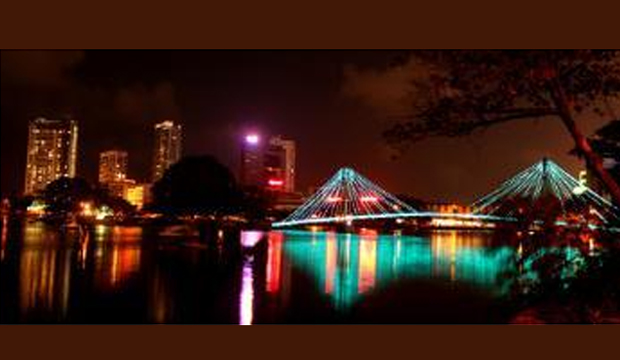February, 20, 2015

• Nation’s leading property portal Lamudi.lk examines developments within the retail property market
From small-scale shops to large-scale shopping centres, the retail industry is considered as one of the key driving forces that will spearhead the country’s economy for the next five years.
It is predicted that the income created through domestic retail demand alone can exceed LKR 13 billion by the end of 2015. Sri Lankan residents and tourists are expected to generate combined revenue that could surpass LKR 23 billion by the year 2018.
With such high importance to the country’s economy, it is vital to understand the direction in which this industry is moving in the near future. According to data from leading property website Lamudi (www.lamudi.lk), retail assets alone makes up roughly 40 percent of all commercial properties being marketed around the country, for both buying as well as renting. With the demand for retail space increasing, these properties are unequivocally one of the most essential contributors to the property market of Sri Lanka, making the case for new investors to explore this segment for untapped financial opportunities in the near future.
According to the report An Island of Retail Opportunity from the investment management giant Jones Lang LaSalle (JLL), a high level of retail openings are forecast to occur in Sri Lanka within the next five years. JLL estimates that around 55 percent of the country’s household expenditure is spent on retail. Equally, around 55 percent of the country’s tourist expenditure (including for food items) is also spent on retail goods. The report highlighted some notable retail hotspots found across the country. These included the financial capital of Colombo, as well as the densely inhabited cities of Gampaha, Kandy, Kalutara, Galle, Kurunegala and Matara.
The city of Colombo is by far the biggest retail hub in the nation and contributed the largest proportion to the country’s overall GDP. The majority of Colombo’s merchandising outlets were found to be located along the city’s high streets, with the famous Galle Road being the best example. The traditional trading region of Pettah is the retail epicentre of this city along with the submarkets of Kollupitiya, Bambalapitiya and Wellawatta that are towards the south western side. These areas also have the highest rate of monthly rent per square feet of commercial space anywhere in Sri Lanka.
The most interesting revelations came with regard to the amount of usable floor space available for business purposes. The floor size of typical fast food outlets and electronic dealers based in Colombo can range from 1,500 to 25,000 square feet. However, the size of a large-scale shopping mall can range from 30,000 to 250,000 square feet, with an average vacancy rate of these shopping malls being only around five percent, signifying the heavy demand for such areas.
There are ten major mall projects planned to be built in the Colombo metropolitan zone in the next few years, adding an estimated total of 1.5 million square feet of retail space by 2018. The biggest of these include malls from John Keells (400,000 sq ft), Havelock City project (250,000 sq ft), Shangri-La (250,000 sq ft) as well as Silver Needle-Abans (160,000 sq ft) respectively. Nevertheless, according to the JLL report, the financial capital of Sri Lanka is also facing an acute scarcity of mall space that is expected to continue at least until 2018. At present, there is a need for around 2.7 million square feet of mall space while in reality only 0.7 million square feet is available, resulting in only 26 percent of the actual demand being covered. It has been predicted that this shortage will persist at around 70 percent until 2017 and will fall to around 32 percent by the year 2018.
Lamudi Sri Lanka’s MD, Hugh van der Kolff comments: “In the longer term, the retail sector shows a lot of potential. There is a lot of room for new developments in this sector as the needs have still not been met by the supply. With the increase of tourism from India, Middle East and the Far East, Sri Lanka could develop to become a center of retail in the region."
About Lamudi: Lamudi was globally founded on October 13 2013 by Rocket Internet. The Sri Lanka branch opened in May 2014. The company is currently available in 28 countries across Asia, Africa, the Middle East and Latin America. The leading real estate portal offers sellers, buyers, landlords and renters a secure and easy-to-use platform to find or list properties online.
Video Story